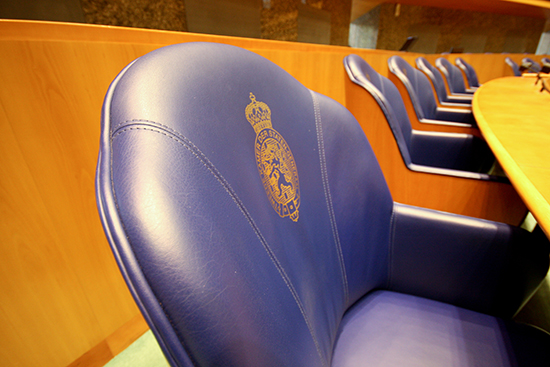As much as we thought and hoped there would be a new cabinet in the Dutch government to showcase in this edition, alas there is not. The negotiations between the VVD, D66 and CDA to bring on one or more additional parties to create a majority government are still ongoing. This is after nearly seven months of negotiation since the national election in late March of this year and after four sets of informateurs (negotiators) have tried to get the job done. And now, heading into the eight month after the election, there is a new informateur teaming up with the current informateur to – as they put it – ‘try something new’.
Early this month, outgoing Minister of Social Affairs and Employment and D66 member Wouter Koolmees was appointed by his party’s leader, Sigrid Kaag, to join current informateur Johan Remkes to continue the negotiations between coalition parties. This was after Remkes submitted his final report to the Tweede Kamer (House of Representatives) after his solo attempt at forming a majority government. Included in this report was a recommendation to continue the coalition discussions with the VVD, D66, CDA and to also include the CU, even though D66 had previously stated it was unwilling to join a government with CU.
What changed allowed the left-leaning D66 to agree on bringing in the more right-leaning CU? Part of this was, as discussed in Remkes’ final report, a new approach to the coalition, the role of the cabinet and increased involvement of the Tweede Kamer in policymaking. The direction Remkes, and his co-informateur Koolmees, seeks to take is that the Tweede Kamer will be more responsible for the ‘what’ in policymaking and the cabinet ministers will be responsible for the ‘how’. This experimental cabinet and indeed governing model will also include a shorter, more concise coalition agreement. Rather than including all specifics in the agreement, the informateurs seek to have more broad-stroked deals in the agreement.
A less detailed coalition agreement is a new route for Dutch national government. In the Netherlands, when the winning party creates the majority coalition with other parties, the deal is usually spelled out in minute detail in the coalition agreement. This gives the Tweede Kamer – and especially the opposition parties – less involvement in policymaking and reduces its legislative effectiveness. With a shorter, more concise coalition agreement with broader policy directions, members of the Tweede Kamer will have the opportunity to be actively involved in policymaking – at least more than they have traditionally been.
Still, this new approach to a coalition agreement does not guarantee that a government will be formed any time soon. Although the winning parties are in favour of this approach, it’s not certain if they are because they truly agree with this exciting new idea, or because this new ‘something’ is the first real positive step forward in the arduous formation process. Political analysts and experts are not overly optimistic about the new approach, some stating that it is too vague and lacks thorough analysis. However, it has been tried before, with the cabinets of Prime Minister Jan Peter Balkenende in the 2000s. Reports from that time revealed no major problems with a loosely-written coalition agreement.
This new approach would also help fulfill a promise that the current Prime Minister Mark Rutte made in the fallout from the childcare allowance affair, where thousands of families were accused of fraud by the Dutch tax authorities. Subsequent blunders by the government and ministries involved, as well as miscommunication between the tax authorities, parents and government, led to further dissatisfaction with the style of governing in The Hague. Calls for a new governance culture were rife after this scandal, and Rutte promised changes would be made. Although there had been talks about a new governing culture, it has only been since this new approach to the government formation and the proposed responsibilities of the cabinet and Tweede Kamer that a new culture seems to be on the horizon.
It remains to be seen if any of this will work: a new member to the informateur team, a new approach to a coalition agreement, the involvement of parties who seem to now be left out of any cabinet positions (GroenLinks and the Labour Party (PvdA) – a subject that is worthy of its own article – and the new legislative responsibilities of the Tweede Kamer. Most parties and members of the Tweede Kamer are openly optimistic and positive, but this could be because like most of the Dutch voters, everyone just wants to have a new government already.
Written by Marla Thomson
